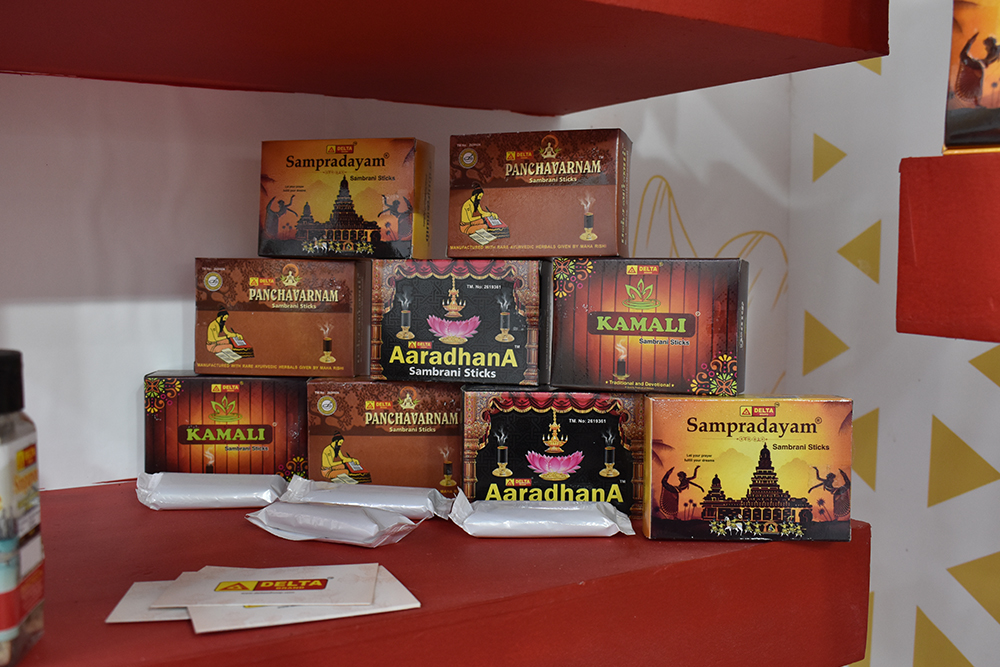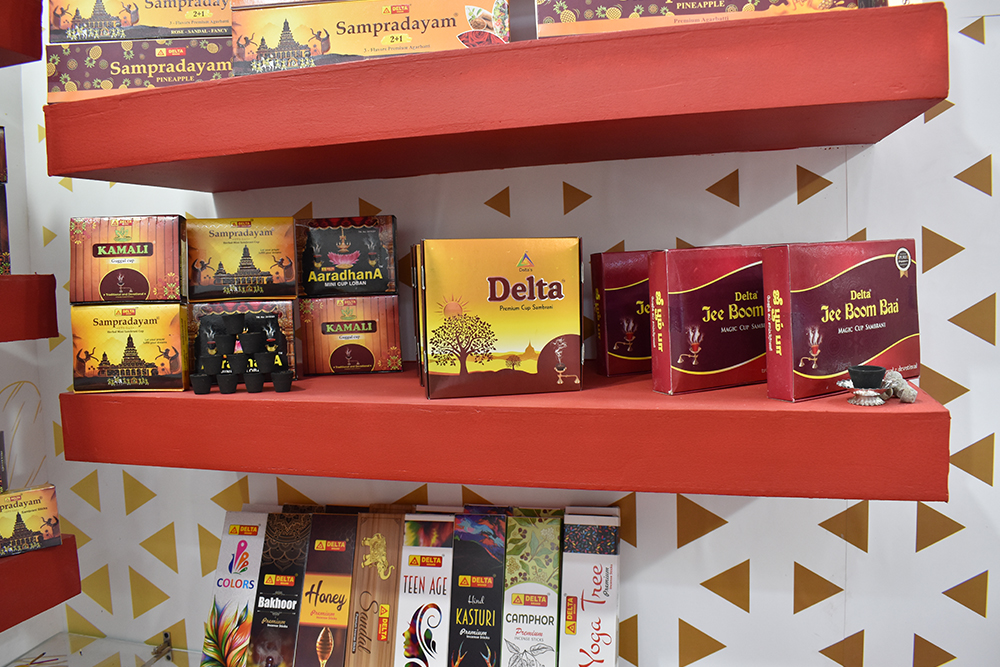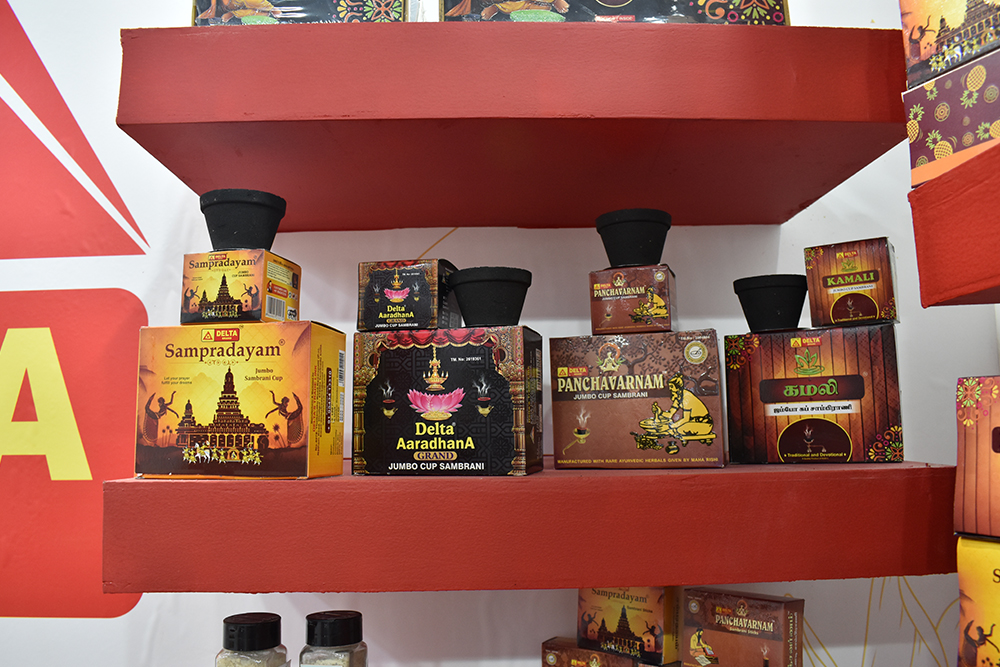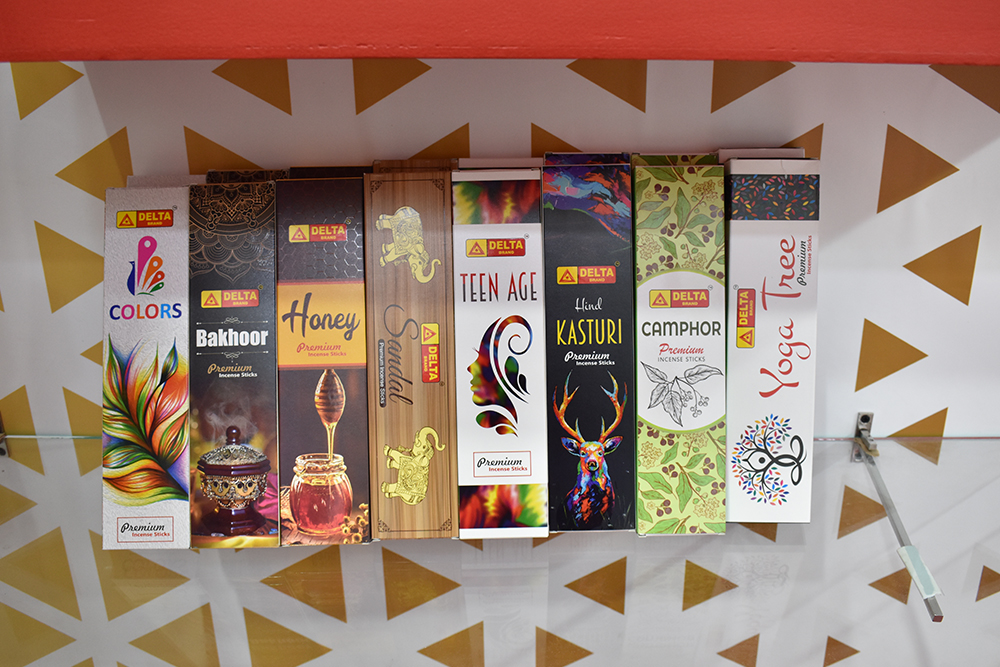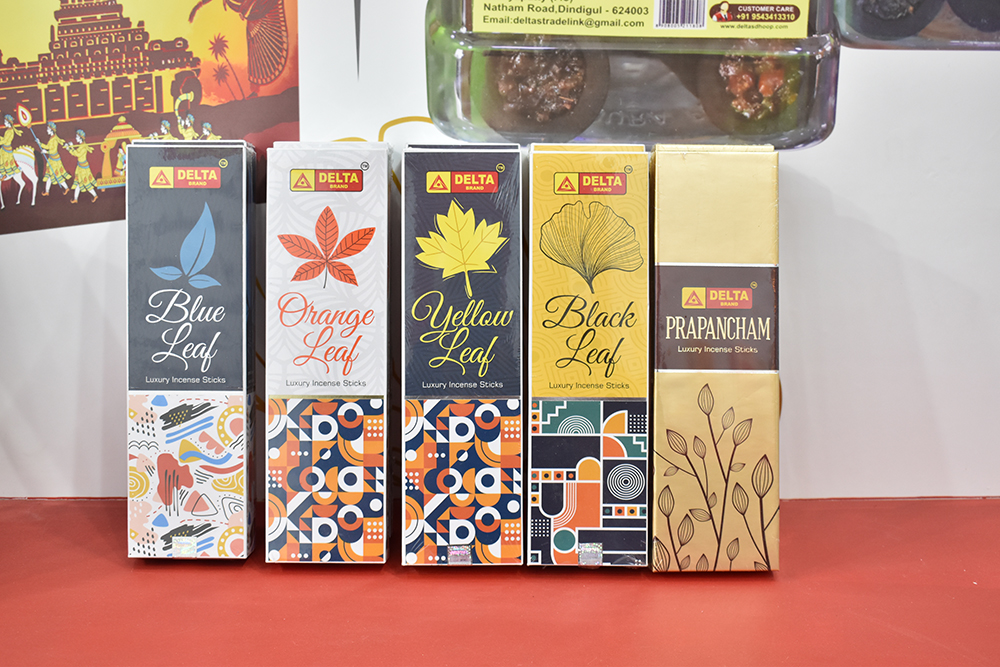
DELTA Aiming to be world’s No.1 sambrani brand
With a set aim, self-confidence and dedication, anyone can achieve the greatest. This rings true for Senthil Kumar, the head of Deltas Trade Link Company, the country’s No. 1 producer of Sambrani products, started from Dindigul in Tamil Nadu. The journey from a tractor mechanic to becoming head of a leading company in the agarbatti industry has been full of challenges and hardships. Today many of Delta’s products are popular across the country and the company aims to become the number one player in the world’s sambrani market. In a conversation with Sugandh India, Senthil Kumar, Chairman, Deltas Trade Link, while narrating his success story, said that consumers are giving more preference to natural products. Hence the company has always been formulating its policies according to the demands of the market. This is also the basic mantra of our success that we have
always given what the customer needs.
Delta Sambrani products have become the country’s leading brands. How was the journey so far?
I was primarily a tractor mechanic and always had an affinity for machines with a passion to do something new. The story of coming into this industry is also very interesting. On a fine Sunday of 1999, when food was being cooked at home, we needed coconut husk for fuel and all the shops near the house were closed. Then I saw a coconut on a tree near the house and brought it home. To use the coconut, I separated its husk. My son Suriya who is now the JMD of Deltas was just a child back then and was playing there. Suriya playfully dropped the box of Sambrani kept in the house near the coconut bark. This gave me an idea to mix that sambrani powder with coconut husk and put it in the burning wood and that spread a very lovely aroma. It was only after this that I got the idea of making Sambrani and further starting this business. I started the business with Rs 50,000 and production was carried out in a factory of 1000 square feet. At that time the workforce was limited to only 3 people. I had a hard time entering the market and convincing customers but I did not stop. After a decade of hard work people started to understand the specialty of my product. Also, since I was passionate about machines and wanted to do something new, I would always think of ways of automating the production process as everyone in the industry was doing it manually with hand operated machines. Automation would save a lot of time in the production process and also reduce costs. In this way, we started using automatic machines in this field. Today, Delta’s state-of-the-art production area is spread over 2,61,000 square feet. With 425 kW power supply and 5S program, it has a production capacity of 8-10 tonnes per day and the target is to reach the production capacity of 20-25 tonnes per day in the near future. Delta uses robotic technology to perform mass production with high quality. It provides employment to 450 people and also provides a unique employment opportunity to the women of nearby villages.
Which are Delta’s main products and which states are the focus markets?
I have been in this business for 23 years and now Delta’s Sambrani products are sold all over India. It has become the number one product in the country. Today, Delta has 7 production units, all using state-of-the-art fully automatic machines, with a production capacity of 25 metric tonnes each. Delta Sambrani’s products Aradhana, Panchavarnam, Sampradayam Herbal, Kamali, Sampradayam Sandal Cup are supplied to markets all over the country. Sambrani products are very popular in South India, especially in Madurai and Dindigul, but over the years their popularity has traveled to rest of the states. Customers constantly want something new which is why now Sambrani products are being bought along with Agarbatti products. Moreover, Sambrani products are also completely natural and that is what customers nowadays prefer. That concludes for the reason for the increasing trend of Sambrani. Another thing is that the use of Sambrani is going parallel with the incense sticks. Delhi, Gujarat, Andhra Pradesh, Telangana, Karnataka and Tamil Nadu are our main markets and recently there is a surge in demand from Kolkata, West Bengal.
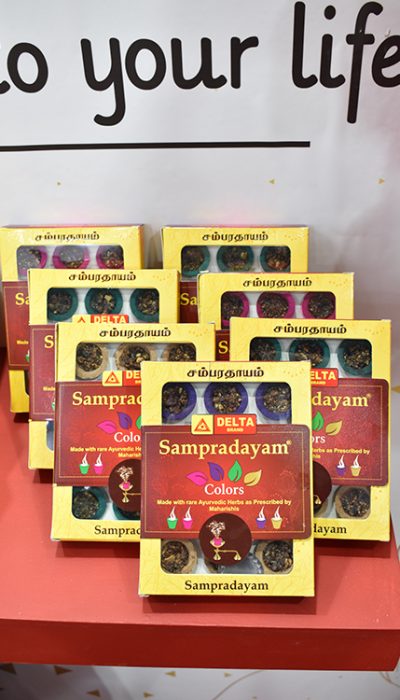
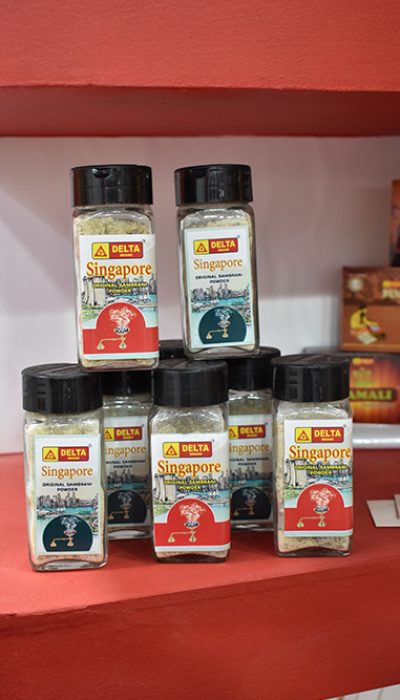
Consumers have different preferences from state to state, and people’s demands for fragrances vary. How do you manage this?
A special department has been formed for Research and Development in the company where new experiments are done apart from the needs of the market. All the production related facilities have been built within the 7 production units. After almost two and a half decades of marketing experience, our main objective remains that all our brands should always be present in the markets across all the states throughout the country. Market trends, customer needs are constantly monitored. We have set up a proper production system. A massive distribution network has been created to ensure uninterrupted supply of all products. Market is full of players and the competition is high, but it doesn’t matter to us, because we always go according to the needs of the consumers and we provide them with that.
Tell us about the challenges you face and how do you deal with them?
Nowadays there is no control over the prices of packaging and raw material in the market. Prices are increasing arbitrarily. The biggest challenge is that the natural availability of raw materials will become more difficult in the coming years, as the demand for natural products increases rapidly. Apart from this, import duty and container prices have increased a lot. Not only this, the cost of the entire transportation system has increased considerably. In such a situation, everything is becoming expensive but the price of Sambrani is the same as it was 20 years ago. Earlier a cup of tea was Re 1 but today it is 10 rupees, whereas 20 years ago the price of sambrani was 10 rupees and it still is 10 rupees. Covid did not make much difference initially. Everything was good till 2022, but the effect of Covid lockdown is now visible on the market. The purchasing power of the people has come down, the customer who earlier used to burn 10-12 incense sticks for worship today has reduced it down to 2 incense sticks. Festival season was not that good this year. There were lack of bulk orders.
Has Delta also ventured into Agarbatti segment? What does delta have to offer in agarbatti segment?
We have come up with more than 20 agarbatti products within a span of last 6 months. Usual scenario is that agarbatti manufacturers venture into Sambrani products, but it is opposite with us as we are Sambrani manufacturers who have entered the Agarbatti segment. Keeping in mind all types of customers, we have launched Agarbatti products in Economical, Premium Flora and Ultra Luxury range. The company has launched all these products simultaneously in the major markets of the country. The premium flora and ultra luxury segment products are available only at premium and exclusive outlets.
Kindly elaborate the segments and price range of the agarbatti products launched.
The premium Flora range consists of 6 hand crafted Flora Agarbatti products. All these products have been prepared after a lot of research by Mr. SK Suriya, the young generation of the company. These products are under the names of Bullock Cart, Pinion, Jimikki, Rose, Kasturi and Saffron. All the products have premium quality fragrance and attractive packaging. These products are customized as per the requirement of premium customers. It is available in MRP of 200 to 250 rupees in 50 grams packing. The company has launched 5 hand made products in the ultra luxury range. These products are under the names of Blue Leaf, Orange Leaf, Yellow Leaf, Black Leaf and Prapancham. These products are specially made for the customers who prefer high quality over the price. Prapancham has the highest price tag. While other products in this range are priced between Rs.500 to Rs.600 per box for a 100 gm pack, Prapancham’s box costs Rs.1000. In the affordable range, the company has launched 7 products namely Colors, Bakhoor, Honey, Sandal Teenage, Hind Kasturi, Camphor and Yoga Tree. All these products are available in a pack of 85 to 90 grams with an MRP of Rs.75.
Tell us about Delta’s Exports? Which products are exported?
The company is exporting premium flora and ultra luxury segment products to many countries. The range has an enticing fragrance and attractive packaging. Customers find it difficult to find other products in this range in the market. These high quality incense sticks are handcrafted and made using natural fragrances and raw materials. Apart from Sambrani, Delta is also gaining pace in the export of Agarbatti. Our goal is to make Delta Sambrani the number one company in the world. In the next year, we have set a target of exporting to 20-25 countries. Sambrani products are mainly used for worship in India but in other countries, they are used in different ways. People use them as room freshener in their houses or their workplace. People abroad also believe that the use of sambrani increases prosperity, and wealth.
How do you see the success of the company and what is your message for the newcomers?
Being successful is not a difficult task. You just have to focus on your goal. Hard work, confidence and dedication towards your work is the most important thing. In business, customers always want a high quality product and if there is a flaw in your product, it should be resolved immediately. Today, Delta is the country’s number one Sambrani company and it is only due to this basic mantra.




